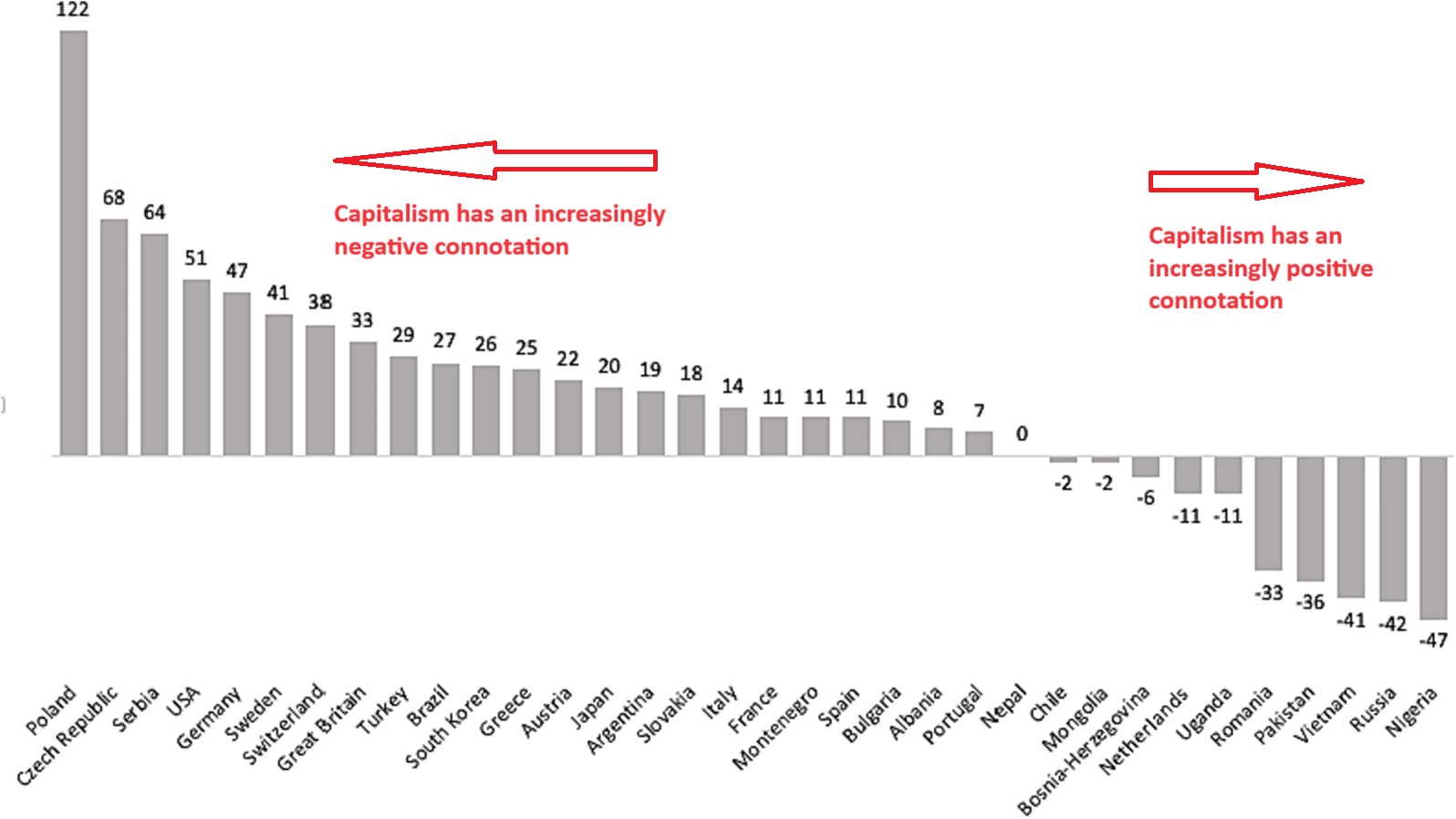I wrote yesterday about new polling data showing support (or lack of support) for free markets in 34 nations.
The headline result is that Poles are the most market-friendly people (followed by Americans). Russians, by contrast, are the most supportive of statism.
Today, we’re going to dig deeper into the data because the survey also showed that support for free markets varies depending on whether people are asked about “capitalism.”
Here’s Figure 3 from the report, showing that support for free markets increases (in a few countries) or decreases (in most countries) when such policies are described as “capitalism.”

The author, Rainer Zitelmann, explains this dichotomy in the article, which appeared in Economic Affairs.
…approval of capitalism increases when the word ‘capitalism’ is omitted (and instead only described)… As I was preparing the survey, I hypothesised that some people are repelled by the word ‘capitalism’ itself, even though they essentially hold pro-capitalist opinions. …While the term ‘capitalism’ was deliberately omitted from the first set of questions, it was explicitly mentioned in the other two sets of questions. …in the United States…approval for a market economy is 51 per cent higher when it is described without using the word ‘capitalism.’ …In only seven of 34 countries – Poland, the United States, the Czech Republic, Japan, Argentina, South Korea, and Sweden – does a positive attitude towards economic freedom clearly prevail. Including the word ‘capitalism’ reduces this to just six of 34 countries, namely Poland, the United States, the Czech Republic, Japan, Nigeria and South Korea.
Here are some observations about other countries.
The fact that people in Nigeria take such a positive view of capitalism may come as a surprise, especially as they also view the market economy negatively. But in Nigeria, capitalism may be a word of hope: People in this poor country may associate it with the kind of prosperity they see in Western countries. …The word ‘capitalism’ has positive connotations in Vietnam – even though the country calls itself ‘socialist’ – because the Vietnamese have had very good experiences with the ‘Doi Moi’ market-economy reforms that began in 1986. …the effect can be very large – as in Poland, Serbia, the Czech Republic, and the United States, for example – but also very small, as in France, Spain and Portugal.
For what it is worth, this dichotomy strikes me as absurd. Why would anyone support free-market policies, but then change their mind when those policies are called “capitalism”?
It is a great system, both because it’s moral and it delivers superior results compared to any alternative.
I even have a 2-part series (here and here) on “defending capitalism” and a 6-part series on the “case for capitalism.”
Perhaps most important, it delivers great results if the goal is lifting people out of poverty.
Given all this information, I’m baffled that some people have a negative view of “capitalism.” But maybe I should simply accept that the word is toxic to some people and instead use terms like “free enterprise” and “economic liberty.” Or maybe I should jsut call it “the recipe.”


